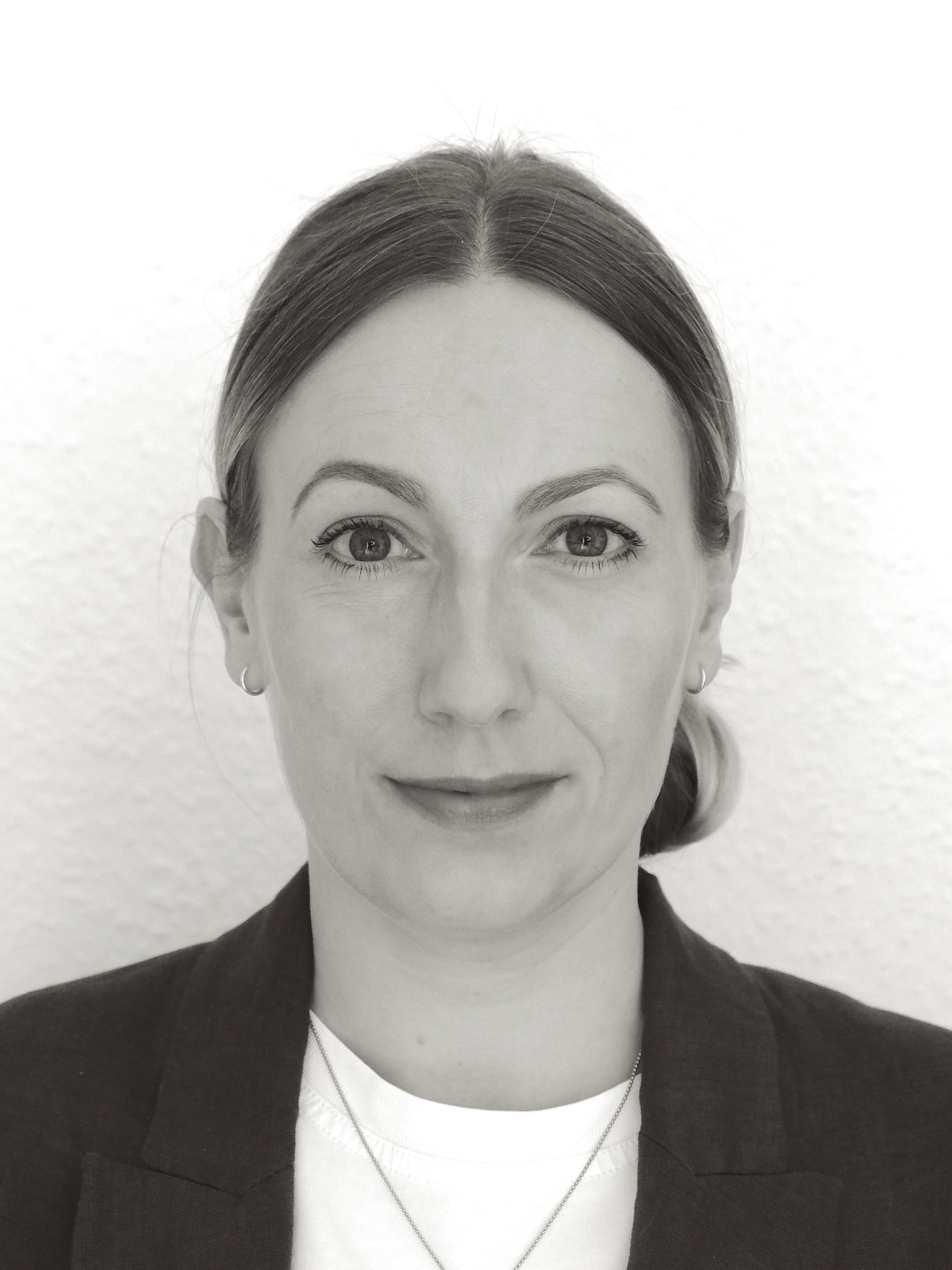Dr. Simone Malejka
Education
| 2017 | Doctorate in Psychology (equivalent to Ph.D., University of Mannheim) |
| 2011 | Diploma in Psychology (equivalent to M.Sc., University of Mannheim) |
Academic positions
| 2020–present | Postdoctoral research associate (University of Cologne) |
| 2018–2020 | Postdoctoral research associate (University College London) |
| 2011–2018 | Graduate research assistant (University of Mannheim) |
Research interests
| My research investigates how latent cognitive processes contribute to observable behaviors. Most of my research falls within the area of human learning, memory, and consciousness (e.g., implicit learning, testing effects, recognition and source memory). I approach these topics with a combination of behavioral experiments and mathematical models (e.g., signal-detection theory, multinomial processing-tree models, Bayesian hierarchical models, global memory models). A particular focus lies on controlling for measurement error. |
Publications
| Vadillo, M. A., Malejka, S., & Shanks, D. R. (2023). Mapping the reliability multiverse of contextual cuing. PsyArXiv. https://doi.org/10.31234/osf.io/eshbg |
Malejka, S., Heck, D. W., & Erdfelder, E. (2022). Recognition-memory models and ranking tasks: The importance of auxiliary assumptions for tests of the two-high-threshold model. Journal of Memory & Language, 127, 104356. https://doi.org/10.1016/j.jml.2022.104356
Vadillo, M. A., Malejka, S., Yu, D. Y. H., Dienes, Z., & Shanks, D. R. (2022). Raising awareness about measurement error in research on unconscious mental processes. Psychonomic Bulletin & Review, 29, 21-43. https://doi.org/10.3758/s13423-021-01923-y
Malejka, S., Vadillo, M. A., Dienes, Z., & Shanks, D. R. (2021). Correlation analysis to investigate unconscious mental processes: A critical appraisal and mini-tutorial. Cognition, 212, 104667. https://doi.org/10.1016/j.cognition.2021.104667
Shanks, D. R., Malejka, S., & Vadillo, M. A. (2021). The challenge of inferring unconscious mental processes. Experimental Psychology, 68(3), 113-129. https://doi.org/10.1027/1618-3169/a000517
Malejka, S., & Bröder, A. (2019). Exploring the shape of signal-detection distributions in individual recognition ROC data. Journal of Memory and Language, 104, 83-107. https://doi.org/10.1016/j.jml.2018.09.001
Starns, J. J., Cataldo, A. M., Rotello, C. M., …, Malejka, S., …, Wilson, J. (2019). Assessing theoretical conclusions with blinded inference to investigate a potential inference crisis. Advances in Methods and Practices in Psychological Science, 2(4), 335-349. https://doi.org/10.1177/2515245919869583
Bröder, A., & Malejka, S. (2017). On a problematic procedure to manipulate response biases in recognition experiments: The case of “implied” base rates. Memory, 25(6), 736-743. https://doi.org/10.1080/09658211.2016.1214735
Malejka, S., & Bröder, A. (2016). No source memory for unrecognized items when implicit feedback is avoided. Memory & Cognition, 44(1), 63-72. https://doi.org/10.3758/s13421-015-0549-8
Conference proceedings
| Malejka, S., Barth, M., Haider, H., & Stahl, C. (2022). Abstracts of the 64th Conference of Experimental Psychologists (TeaP). Pabst Science Publishers. |
Awards
| 2023 | Teaching Award of the psychology student association at the University of Cologne |
| 2022 | Teaching Award of the psychology student association at the University of Cologne |
| 2019 | Best Ph.D. Thesis Award of the Cognitive Section of the German Society for Psychology |
Teaching
| Research methods and psychological evaluation (meta-analysis), Statistics 1 & 2 (including R tutorial), Introduction to Bayesian statistics using JASP, Data analysis using SPSS, Milestones of memory psychology, Advanced cognitive psychology (memory models), Empirical research skills (source memory, testing effect), Diagnostic assessment and psychological testing |
Student supervision
| Supervision of B.Sc. and M.Sc. theses on human learning, memory psychology, consciousness, and statistical modeling of cognitive processes |
